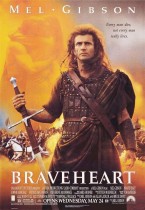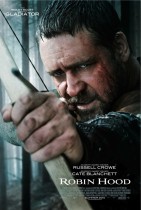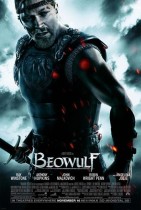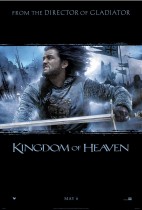Gladiator (2000)
Synopsis
Gladiator tells the story of General Maximus; father, warrior, and greatest general of Rome, and its betrayal of him at the hands of Commodus, the dying emperor’s son. Maximus must face enormous challenges to prevail – both on and off the arena. He most call upon his honor and sense of justice to withstand the darkness that threatens both from without and within.
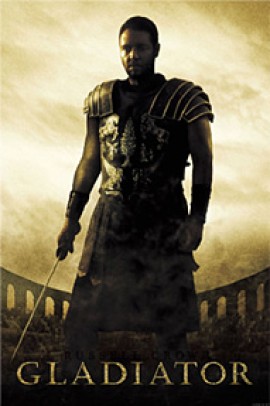
| Genre | Drama |
| Production year | 2000 |
| Director | Ridley Scott |
| Male actors | Russell Crowe, Joaquin Phoenix, Oliver Reed, Richard Harris |
When the honor of one man is stronger than an empire
by Eivind Figenschau Skjellum
Gladiator’s opening scene shows a man’s hand gently flowing through a ripe field of crops. The hand is sensitive, neither aggressively swiping the crops out of its way, nor dangling aimlessly on a road to nowhere. It is a hand radiating purpose and strength, belonging to a man who is listening deeply to his surroundings. The field is a deep orange. Harvest is near. It cuts to the image of a man standing solemnly in a landscape scorched by fire.
He is listening, feeling into his surroundings, and there is an air of inevitability about him. The lines on his face show that something big is brewing. As he turns around, a red robin catches his eye, flutters its wings innocently, and shoots off. A subtle, contented smile spreads on the man’s face as his nostrils widen subtly. And then he walks off. These few, short opening minutes paint a picture of a man at peace with himself, erect with purpose and masculine direction, yet intuitive and sensitive, in tune with the mystery of the vast feminine that surrounds him.
He seems to exude qualities just by his presence alone: Trustworthiness, integrity, strength and honour, coupled with a deep love – for what as yet undetermined. This is no ordinary man. He is General Maximus, foremost of Roman generals, father, husband, favoured by the emperor and leader of men. We find ourselves in the cool lands of northern Europe. It is winter and darkness is near. Rome is on a campaign of war, facing its last battle against the remaining Germanic tribes of the North.
As the battlefield unfolds under the watchful gaze of the aging emperor Marcus Aurelius, we bear witness to a testimonial of the superiority of the Roman war machine. This empire, despite its shortcomings, was the “light” of European antiquity, and its unmatched level of civilization gave rise to a war machine that no amount of barbarism, no matter how ferocious, could match. But something’s afoot behind the drawn carpets of Rome’s marbled halls of power. The senate is fraught with corruption and the emperor is dying. Eager to restore Rome to its past glory, Marcus Aurelius names Maximus protector of Rome until the senate is fit to reign over Rome yet again – as a born again republic.
“Your failings as a son are my failings as a father”
But the emperor’s son Commodus, a scheming and broken man, will have nothing of it. Commodus is suffering intense inner turmoil from what he feels is a lack of acceptance and love from his own father. “Commodus is not a moral man. He cannot rule!,” Aurealius exclaims to Maximus as he tries to convince him of why he must accept “The honor that has been bestowed upon him.” Maximus declines, at which Aurelius insists “that is exactly why you must rule!”
Maximus reminds us that any man who desires power for power”s sake alone – and not for the sake of a greater calling – will become corrupted and hurt both himself and his surroundings. With heavy heart, Maximus accepts his destiny, and realizes that his reunification with his family – his wife and son for whom he desperately longs – is still far off. Commodus is living on the hope that he will be named emperor upon his father”s death. Yet in a key scene, matter of factly, as if it was never in question, he tells him “You will not be emperor.”
The long overdue confrontation with his father that he was never brave enough to intitiate thus finally unfolds. Commodus is a Lover archetype, not quite the Emperor-material as Maximus’ King archetype, and has spent all his life hungering for his father’s love and his “warm embrace”. The poor way in which he has handled the lack of it has become the source of his corruption. The emperor, noble as he may be, is as much to blame for what unfolds as his son. He softly acknowledges this, on his knees and with tears in his eyes.
Aurelius has heeded that primordial calling that says that any masculine man will have to prioritize his calling over his relationships, lest he will suffer, and by extension those around him will suffer. Aurelius has not managed to balance this well enough, however, and his son”s resentments are the result. “Why do you hate me so much!”, Commodus wails, with tears in his eyes, before he embraces his father – and kills him, before he had the opportuniy to announce Maximus’ protectorship.
The learning from this scene is that, as Commodus finally gets the love he wants from his father, he has become incapable of receiving it. The love feels so painful and so tainted with bitterness that it becomes the motive for murder. ANY man must be willing to enter a confrontation with his father, lest the corruption of their relationship will remain and not yield to the nobility and immensity of father-son love.
Yet Commodus couldn”t, because he was from the outset an emotionally fragile person, wishing just to be held, to be loved. By disconnecting from his true self as a Lover, wishing he could instead be the polar opposite Warrior, he has gone to war with himself, and is no more a free man. Commodus immediately starts his scheming and plotting, and as Maximus swears no allegiance to the new Emperor, in Commodus’ mind, he is a dead man. Maximus’ second in command Quintus puts loyalty to the concept of Rome higher than his own heart, a sign of his dubious honor, and accepts the burden of executing his friend.
Bread and games
Maximus escapes, only to find his family slaughtered by the vengeful forces of Rome. Emptied of all desire to live, feeling the tempting echoes of eternity, he is picked up by a slave caravan and brought to Zucchabar, where the next part of his journey unfolds. He is to be Gladiator, most unwilling of all. He is after all Maximus, Rome”s first general, and no mere sewer-dog. Yet fight he must, if live he wishes, and his honor both inside and outside the arena quickly wins him the support and allegiance of his gladiator friends.
This reminds us that a man is not at the mercy of his surroundings – he shapes them through his own inner strength and call for expanding love and honor in the world. Maximus is part of Proximo’s Gladiatorial crew. Proximo is a former slave, who was granted his freedom by Marcus Aurelius himself. He now makes his living from that which he was freed from, but the days of the roaring crowds at the Colosseum have ended, and Gladiator games are not what they used to be.
With Commodus now emperor, bread and games are back, and Maximus soon finds himself the golden boy of the crowds in the mighty Colosseum. Commodus descends deeper and deeper into his own corruption, and his sexual desire for his sister Lucilla grows ever greater as she is the last person in the world with any glimmer of love for him. Any person, man or woman, wishes for love more than anything.
Yet for a man with a masculine essence, which Commodus does have, the desire for freedom is greater still. His lack of being loved has become his prison cell, the key for which he rejected when he killed his father. Now the incestuous desire for his own sister and the promise of being loved by his people, are the only things left to live for. Maximus is an honorable man, erect with purpose, driven by his unshakable love and honor. Even though that has become tainted with thoughts of revenge, his core remains unshaken. He will never become a dishonorable man.
This honor soon becomes the very reason why the crowds of the Colosseum love him so. They are a primitive group of people, there only to feed their primal lower-chakra desires of seeing death and rebirth unfold before them. Incidentally, this is much the same as the modern fascination with gory films such as Saw. Just as we are, they are there to vent, taking a break from a life of civility and politeness, and worshiping that masculine fascination with the release of death. Maximus doesn’t fear death (he almost longs for it) and is stronger than any man or woman cheering him on.
In the end, his towering presence and masculine strength of honor cuts through that primal bloodthirstiness of the crowd, and reminds them yet again of what we can aspire for as human beings. He inspires them, spreading echoes of that which could have been – greatness – in the hearts of those who watch. As a Gladiator, Maximus has come to epitomize that which the Roman Empire stands for – glory, strength, honor and love. He cannot die, because the promise of Rome dies with him. This is what brings him such power, as a mere slave. This is the strength of one man’s heart.
“Now we are free”
This strength inevitably brings him his freedom, although at the cost of his life. The masculine always longs for release, be it through victory, fulfilling a calling or dying. The ending provides Maximus with all, and the nobility of his death carries such great emotional weight and the promise of being greater that it has tears roll down the faces of grown men – if they dare stay open – and their hearts expand with purpose. He has proven that the power of one human heart is greater than an empire counting millions, if it is aligned with truth and love.
Nobody takes any note of Commodus, lying dead at his side in the arena. Commodus could have been a good man, but he chose not to be, through making one bad decision after another. The only thing separating the two – their moment to moment decisions, truth over lies, love over unlove. General Maximus – Gladiator, is the ultimate masculine icon, living only to serve, dedicated to his family, making no compromises with his own heart and caring for his people like a father.
He represents qualities that aren’t given weight in the raising of young men in today’s world. Yet, just like with the crowds of the Colosseum, he reaches us in such a way that we are reminded that deep inside us, those primordial qualities still exist, desperately longing to be freed from the bondage of modern life, free as forces conducting the future of humanity. This is the destiny of any man. And Commodus reminds us that we ignore it at our own peril.

